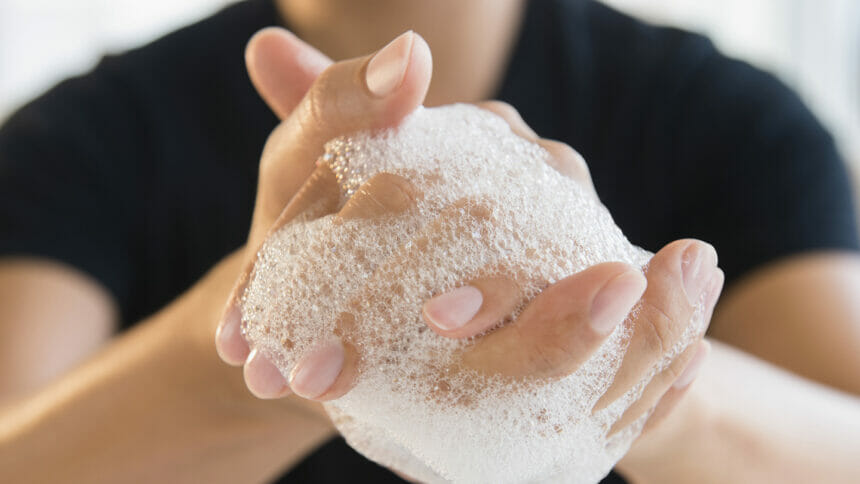Infection
Chlorhexidine lowers infections, antibiotic-resistant germs in trial
Nursing homes that use chlorhexidine on the skin and nose can prevent infections and lower the amount of antibiotic resistant organisms in the facilities.
The study was published today in the New England Journal of Medicine. The researchers examined approximately 14,000 people and compared bathing routines at 28 nursing homes in California for 18 months. Fourteen facilities used regular cleaning methods, and the others decolonized all residents with a special soap, chlorhexidine, and a nasal swab with povidone-iodine (iodophor) to remove pathogens from residents’ skin and nose. The soap and swab have been used in healthcare for more than 60 years.
Nursing homes that used this decolonization routine reduced transfers to hospitals due to infections and other causes. The communities avoided two sending residents per month who otherwise would have had to go to the hospital for infections. Nursing homes that used the routine also reduced the prevalence of multidrug-resistant organisms by half when people received the treatments.
For every 12.5 people in nursing homes who receive this decolonization intervention, one hospitalization (for any reason) will be prevented, the researchers said. For every 10 who receive the intervention, it could prevent one infection-related hospitalization.
“For an older person, having an infection and needing to be transferred to the hospital
can be life-threatening. Now, nursing homes have another tool to help them prevent
infections, reduce transfers, and keep our older adults safe,” Robert Otto Valdez, PhD, director of the Agency for Healthcare Research and Quality, said in a statement. The AHRQ funded the study.
Removing the bacteria manually can reduce the person’s chance of getting an infection.
People who live in nursing homes have a high risk for healthcare-associated infections because of their age, wounds, medical devices and other health ailments.
“CDC is excited to see the results of a nursing home-focused infection prevention intervention being published. Given the growing concern of harm from antimicrobial-resistant germs in nursing homes, the impact of this decolonization bathing program is quite important and provides a concrete action that facilities can use to protect nursing home residents.” Nimalie Stone, MD, senior adviser for long-term care in the US Centers for Disease Control and Prevention’s Division of Healthcare Quality Promotion, said in a statement.

